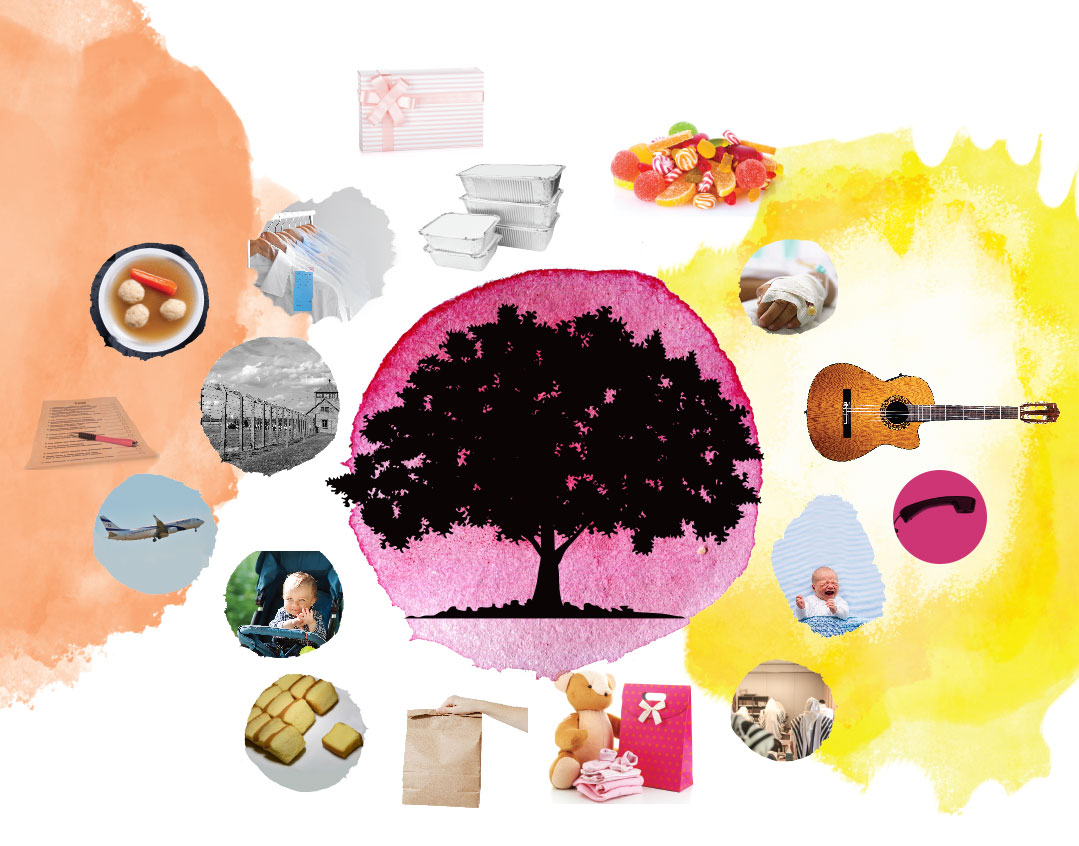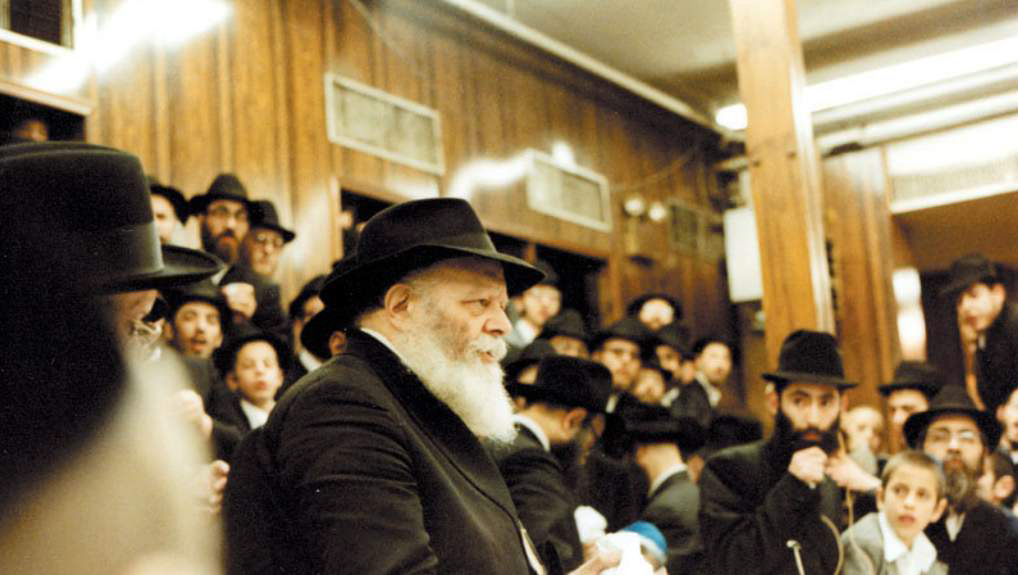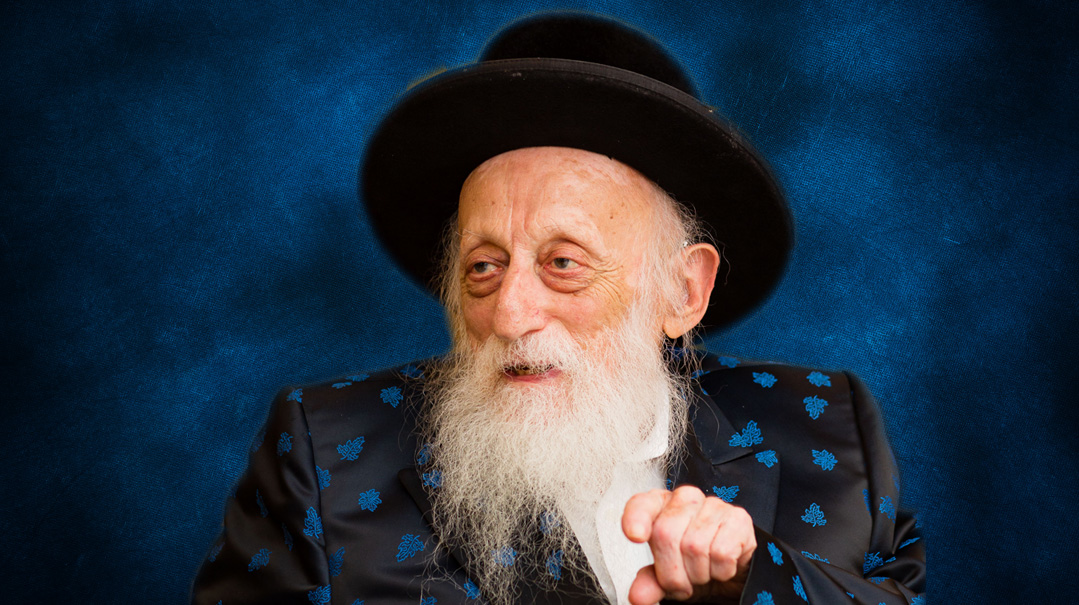Acorns to Oaks
| February 5, 2020It may have been a seemingly small act of kindness, but it took root and grew tall: 17 readers share stories of giving the pick-me-up

Pesach fell out that year on a Sunday night. Which meant — I realized with a jolt late Friday afternoon, about an hour before candlelighting — that I had to pick up the clothing from the dry cleaners right now, because they wouldn’t be open on Sunday!
I left the chaos behind me and drove the five blocks to the cleaners. I was greeted by a looong line of frum people — almost exclusively men — who’d apparently had the same epiphany as me.
What choice did I have? I got in line.
But the kindly, bearded man in front of me (whom I vaguely recognized as Rabbi Shmuel Mayer, dean of Bais Kaila High School of Lakewood) wasn’t having it.
He couldn’t have known about the three young children I had waiting for me at home, or that my husband was battling incurable cancer. Yet he might have sensed my quiet distress, because he turned to me and said, “Why should you wait in line? Give me your ticket and I’ll take your things home. You can pick them up from my house on Motzaei Shabbos or Sunday.”
I wanted to break down in tears right there on the sidewalk — someone cares! — but instead I thrust my ticket at him amid profuse thanks and rushed back home to face my life again.
But something was different. Although nothing had changed, everything had.
Rachel Josephs, Lakewood, NJ
Worth It
Yamim Tovim are the hardest.While it’s challenging to be an “older single” all year-round, Succos and Pesach highlight the differences between me and my siblings. As couples, children, and luggage arrive from around the States and Israel, the conversations quickly move to children’s clothes, tantrum techniques, and labor stories.
A typical scene will include toys strewn all over, children crying, husbands helping, and harried mothers serving their little children before meals start. Emotionally, this was very challenging. It had been difficult seeing my younger siblings get married and move on, and over Yom Tov, reality hit hard.
One year, after a ten-day hullabaloo of meals, cleaning, cooking, wiping tears, and playing games, I was left feeling empty.
“Will I ever be this accomplished?” I wondered.
Don’t get me wrong, I was successfully pursuing a career, touching young hearts every day as I stood in front of my classroom, but for over a decade, I waited and wondered and felt inadequate.
All this changed one Succos, the last one before my zeidy left This World. He came home from shul and shared a compliment he’d received about my teaching from my principal’s husband.
Then he looked me in the eye. “For you, it paid to be freed from Bergen-Belsen.”
My grandfather spoke little about his past, but we all knew he’d suffered immensely. But if Zeidy thought that it paid to survive just for the nachas I was giving him, then maybe, after all, I could accomplish even without a kollel husband and sweet little children.
Zeidy, while you’re no longer with us, your kind words live on, giving me strength and courage.
C.S., Montreal, Canada
A Stitch in Time
It was almost bound to happen, with three active little boys in a bungalow colony, reveling in the grass and freedom — but that didn’t make it any easier. There I was, 9 a.m., pre-coffee, the two little ones still in pajamas, and a child who clearly needed stitches.
We’d dealt with stitches more than once, and had the routine down pat. Tatty bundles injured kid into the car, Mommy stays with the others, Tatty arrives at the doctor’s office, where Mommy’s arranged an emergency appointment, injured kid gets stitches and stickers. Blissful, boring life resumes.
Except with Tatty and car some 300 miles away, and Mommy and kids in the middle of nowhere, logistics were going to be significantly more complicated. I flew into a whirlwind of activity, contacting the pediatrician for an upstate referral, hurriedly getting everyone dressed, arranging babysitters, scheduling an appointment, finding a car service that could get me there in time, and doing my best to stanch the flow of blood. All with one phone, two hands, and three kids in various stages of hysteria. I felt so, so miserably alone.
Finally, all the details in place, I rushed out, expecting to return sometime after noon.
That was when I bumped into Gitty. I filled her in.
She looked at me. “Did you have breakfast yet?”
Breakfast? I’d grabbed a protein bar on the way out. Did that count?
“Wait.” She disappeared into her bungalow, and reemerged a short time later. “Hatzlachah,” she said, handing me a bag.
As I sat in the car with my son, headed to face the music all by myself, I opened the bag. There was a sandwich, a salad, a snack, and water.
It was only breakfast, but I could have cried.
Thirty minutes later, I struggled valiantly to remain calm, single-handedly holding down a screaming child as I recited my most dramatic rendition of the Makkos. It wasn’t fun.
But I got through it feeling satiated, warmed — and no longer alone.
Raizy A., Brooklyn, NY
Plane Kindness
After my brother tragically lost his wife, I flew in from Eretz Yisrael to be with him during shivah. I was able to assist him with his three little kids, now orphaned, and be there as he mourned the loss of his very special wife. After shivah was over, I flew straight back to my own children and husband. It was so hard to leave my brother alone, far away, especially after he’d suffered such a loss.
A few days after I returned home, my sister called me. “The most amazing thing just happened,” she said. Someone who’s close to our brother had reached out and asked if he could speak with her.
“I’ve spent years getting to know your brother and sister-in-law and I feel very close to them,” he told her. “At the shivah, I left wondering how I could help your brother through this tragedy. I was racking my brain, feeling helpless.
“I couldn’t help but notice how much it meant to your brother to have his sisters by his side. I don’t know your sister, but I heard she came in from Israel and that her husband is in kollel. I don’t want to make her uncomfortable, but the only thing I can think of doing for your brother is bringing your sister to him.
“From here on in I will sponsor any flights for her to come in to the States to visit your brother and his children. Please tell her I don’t want to have any conversations about this and it can never get back to your brother. It must remain anonymous.”
I hung up the phone and cried. Mi k’amcha Yisrael.
S.F., Jerusalem, Israel
Caring from Afar
During my years of infertility, one of the most difficult parts for me personally was family, friends, and acquaintances wishing me, “Im yirtzeh Hashem by you” or being told, “I’m davening for you.”
When we were baruch Hashem blessed with a child, there were so many people who celebrated with us and sent us presents. Yet the one gift that stands out until today, over 20 years later, was the gift box we received in the mail that contained a cute stretchie. It was from an old classmate, Ziva Willig Krieger a”h.
I hadn’t spoken to or seen her since high school, and I didn’t even know what she was up to, but she’d clearly been quietly thinking of us from afar and davening for us, without my ever having known. Her gift was a gentle and kind way of saying, “I was there for you before, and now I want to celebrate with you too.”
Ziva’s thoughtful gift warms me until today — a lesson in kindness, love, and care.
Shifi Bloom, Far Rockaway
That Takes the Cake
When I was in tenth grade, I cochaired the chesed organization of my high school. We needed a fundraiser to bring in much-needed cash for numerous projects, so we decided to host a cake sale. I was put in charge of ordering the cake.
No problem, I assured my cochair. I’d calculate how much was needed, order it, and be on hand the morning of the cake sale to receive the order and plate it.
To this day, I’m not sure what happened with that order, but when the delivery truck came, they brought in cake and brought in cake and brought in cake… 100 pounds of sponge cake!
My cochair gave me a funny look. Together we started selling the cake. But at the end of the day, what could we do with the mounds and pounds of leftover cake?
Assuming responsibility for the blunder (I’d never demonstrated an aptitude in math!), I called the only person who would understand the gravity of the situation and perhaps be able to help — my mother.
Between sobs, I explained what happened. Without flinching, my mother told me to bring it all home, assuring me that “we” would prepare a plateful of cake each Erev Shabbos that I’d bring to school and sell. Not only that, she’d prepare icing and frost the cake to refresh it and make it more appealing.
And so it was. I stuffed every inch of freezer space with pound cake, and Mommy would lovingly prepare a platter of frosted cake every Erev Shabbos, which I’d bring into school and sell, all proceeds to tzedakah. My mother did this every Friday until the last crumb left our freezer — on Erev Pesach.
Thank you, Mommy, for modeling for me, then and always, how chesed can be done graciously, making it look like a piece of cake.
Dena (Tuchman) Mayerfeld, Passaic, NJ
Kindness in Stock
I couldn’t do anything. My four-week-old baby didn’t stop screaming, and refused to be put down. I couldn’t even cook up a silly pot of spaghetti to accompany the meatballs my mother had sent for supper. I was exhausted and frustrated and just plain thirsty — but I couldn’t even pour myself a cup of water.
Then I had a brainstorm. If I couldn’t calm my baby, at least I should free my hands. At the next opportunity, I headed to Little Luxury, a local baby boutique, to purchase a baby carrier. My hopes were high. Soon I’d be able to live a semi-functional life.
But as I browsed through the store, my hopes were dashed. The baby carriers they had in stock were brand-name, high-quality carriers, which, of course, came along with a brand-name, high-quality price tag that I didn’t want to spend. My shoulders slumped. I knew I should be grateful for my precious prince, but at that moment, I felt despair.
I guess the store owner of the store must have seen a flash of misery cross my face and intuitively understood the needs of another Yid. He didn’t try to persuade me to buy his merchandise, but instead told me of two other baby stores that might carry what I was looking for.
I bought the baby carrier in the competitor’s store, and headed home feeling lighter than I had in weeks. With my newborn strapped onto me, I was ready to conquer the world. I poured myself a drink! I cleaned my house! I made a delicious supper! My confidence, previously at rock bottom, was restored. I nuzzled my baby, nestled closely and securely near my heart.
My baby, now a rambunctious toddler, was recently joined by a (much calmer) brother. But I’ll never forget the man who doesn’t even know how his recommending a competitor’s store enabled me to taste the joy of motherhood.
G. Kraus
Part of the Family
August 1956, a Tzeirei Agudah convention was taking place in the Empire Hotel in the Catskills. It was my first encounter with a large group of frum people.
Motzaei Shabbos, a number of young men surrounded Shlomo Carlebach as he strummed his guitar. Soon they were dancing. Women watched from the sidelines, with some girls standing on chairs for a better look. At one point, a girl stepped off her chair and another girl climbed up onto it.
“That’s my chair,” the first girl said. “I just stepped down for a minute to stretch.”
I watched, waiting for action — if not a shoving match, then a shouting one. Instead, the second girl smiled, moved as far as she could to the side of the chair, and held out her hand for the first girl to join her. With both girls on the chair they held on to each other so neither would fall off.
The dancing went on all night. At dawn a little old man came into the room and said it was time for Shacharis. I expected the young men to ignore him. Instead, they drew him into the circle and danced with him before the dancing came to an abrupt end and the men filed into the shul. I later heard the man was the famed Rav Eliezer Silver, rav of Cincinnati.
My roommate at the hotel was an older woman. Because we had different schedules, we saw very little of each other. When I came up to my room early Sunday morning after watching the men dance through the night, I was surprised to see her already up and dressed. Another surprise: There was a third roommate in the room sleeping soundly.
My roommate whispered to me that the girl had come in very late at night and I should be quiet so as not to disturb her. No mention of how her sleep must have been disturbed by this new arrival.
All of this had an indelible impact on me. If these were the actions and reactions of frum Jews, I wanted to be a part of the family.
Maurine Weiner, Boro Park
(Excerpted from Family First, Issue 679)
Oops! We could not locate your form.











